The UAE has historically been synonymous with vast oil reserves and a significant role in the global energy market. However, the nation has taken monumental steps toward diversifying its energy portfolio and embracing renewable energy sources. This transition is driven by a commitment to sustainability and a vision for a greener future, ensuring energy security and economic resilience. The UAE’s journey toward renewable energy involves a series of ambitious initiatives, strategic investments, and innovative projects that collectively position the country as a leader in the global shift towards sustainable energy.
Sustainable Energy in UAE
One of the cornerstone initiatives in this transformation is the UAE Energy Strategy 2050, launched in 2017. This comprehensive plan aims to increase the contribution of clean energy in the total energy mix to 50% by 2050, reducing the carbon footprint of power generation by 70%. The strategy also seeks to improve energy efficiency by 40%, leading to savings of around AED 700 billion. The UAE Energy Strategy 2050 is not only a roadmap for sustainable development but also a blueprint for achieving a balanced energy mix that supports the country’s economic and environmental goals.

Central to the UAE’s renewable energy initiatives is the development of solar power projects. The UAE is home to some of the world’s largest and most innovative solar energy projects, including the Mohammed bin Rashid Al Maktoum Solar Park. Located in Dubai, this solar park is the largest single-site solar park in the world, with a planned production capacity of 5,000 megawatts by 2030. The project is expected to reduce carbon emissions by over 6.5 million tonnes annually. This ambitious project showcases the UAE’s commitment to harnessing solar energy and setting new benchmarks for renewable energy projects globally.
Another significant initiative is the Barakah Nuclear Energy Plant, the first nuclear power plant in the Arab world. Located in the Al Dhafra region of Abu Dhabi, the plant consists of four reactors and is expected to provide up to 25% of the UAE’s electricity needs once fully operational. The Barakah plant underscores the UAE’s approach to incorporating diverse clean energy sources into its energy mix, thus enhancing energy security and sustainability.
In addition to large-scale projects, the UAE has also focused on fostering innovation and research in renewable energy. The Masdar City initiative in Abu Dhabi is a testament to this commitment. Masdar City is a hub for renewable energy research, development, and innovation, hosting numerous startups, research institutions, and international companies focused on clean technology. This eco-friendly city is designed to be one of the most sustainable urban communities in the world, utilizing renewable energy sources and sustainable practices in all aspects of its development.
The UAE’s commitment to renewable energy extends beyond domestic projects to international collaborations and investments. The country has invested in renewable energy projects worldwide, contributing to global efforts to combat climate change. Through entities like Masdar, the UAE has developed renewable energy projects in over 30 countries, including wind farms in the UK, solar power plants in Egypt, and other clean energy initiatives across the globe. These international ventures not only promote global sustainability but also position the UAE as a key player in the global renewable energy market.
Public and private sector collaboration plays a crucial role in the success of the UAE’s renewable energy initiatives. The government has established policies and regulations that encourage investment in renewable energy, such as feed-in tariffs, green certificates, and tax incentives. These measures create a conducive environment for private sector participation and innovation. Companies like Abu Dhabi National Oil Company (ADNOC) and Dubai Electricity and Water Authority (DEWA) are leading by example, investing heavily in renewable energy projects and integrating sustainability into their operations.
Education and public awareness are also vital components of the UAE’s strategy to promote renewable energy. The government and private sector have launched numerous initiatives to educate the public about the benefits of renewable energy and the importance of sustainability. Programs in schools and universities, public awareness campaigns, and community engagement activities are designed to foster a culture of sustainability and encourage the adoption of clean energy practices among citizens and residents.
Eurogroup Consulting
Eurogroup Consulting has extensive experience in the renewable energy sector and can provide invaluable support to businesses and government entities in the UAE. With a deep understanding of the local market dynamics and regulatory landscape, Eurogroup Consulting offers tailored solutions to help clients navigate the complexities of renewable energy projects. Our expertise includes strategic planning, project management, financial structuring, and stakeholder engagement. By leveraging our global network and local insights, we assist in the successful implementation of sustainable energy initiatives, ensuring that projects align with the UAE’s vision for a green and sustainable future. Our team of experts is dedicated to driving innovation and excellence in the renewable energy sector, helping clients achieve their sustainability goals and contribute to the UAE’s leadership in global energy transition.
The UAE’s ambitious and multifaceted approach to renewable energy is paving the way for a sustainable future. Through strategic initiatives like the UAE Energy Strategy 2050, innovative projects such as the Mohammed bin Rashid Al Maktoum Solar Park and Barakah Nuclear Energy Plant, and international collaborations, the UAE is setting new standards in the renewable energy sector. The country’s commitment to sustainability, driven by visionary leadership and supported by public and private sector collaboration, positions the UAE as a global leader in the transition to a greener, more sustainable energy future.

